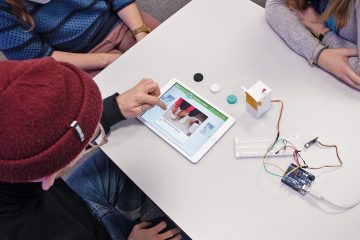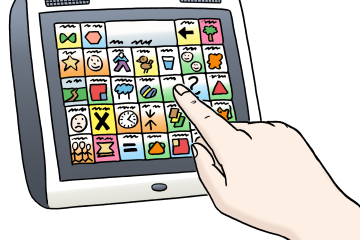Vom 29.09.2020 bis 01.10.2020 fand die internationale Konferenz Cyberworlds 2020 statt. Hier wurde eine Studie des Projekts veröffentlicht und vorgestellt, welche die Barrierefreiheit verschiedener Interfacearten für Menschen mit intellektuellen Behinderungen untersucht.
Accessibility of Different Natural User Interfaces for People with Intellectual Disabilities
Autoren: Melinda Braun, Matthias Wölfel, Gregor Renner und Christian Menschik
https://doi.org/10.1109/CW49994.2020.00041
Digital technologies have many advantages for users, such as virtually unlimited access to information, entertainment , and communication. Most modern human-computer interfaces are developed under the assumption that they will be used by a person with typical physical, intellectual, and perceptual abilities. Although some operating systems already include accessibility features, in most cases the effective use of the respective interface can be severely restricted if a person’s abilities deviate from this norm. To what extent the class of ’natural‘ user interfaces-including touch, voice and touchless-are accessible to people with intellectual and possibly motor disabilities is an important but not yet investigated question. Therefore, this paper investigates the current accessibility of these three interface types. First, we conducted a field study to figure out how the target group interacts with these types of interfaces in general. Second, quantitative data on cognitive and motor skills was collected using parts of the Questionnaire for Observing Communicative Skills-Revision (OCS-R) which is widely used in institutions for people with disabilities in Germany. Finally, the accessibility of each interface type was analyzed with the help of the data obtained from the questionnaire and an expert survey, which determined the important and unimportant skills required for each interface. These findings show how usable different types of natural user interfaces are for this target group.

